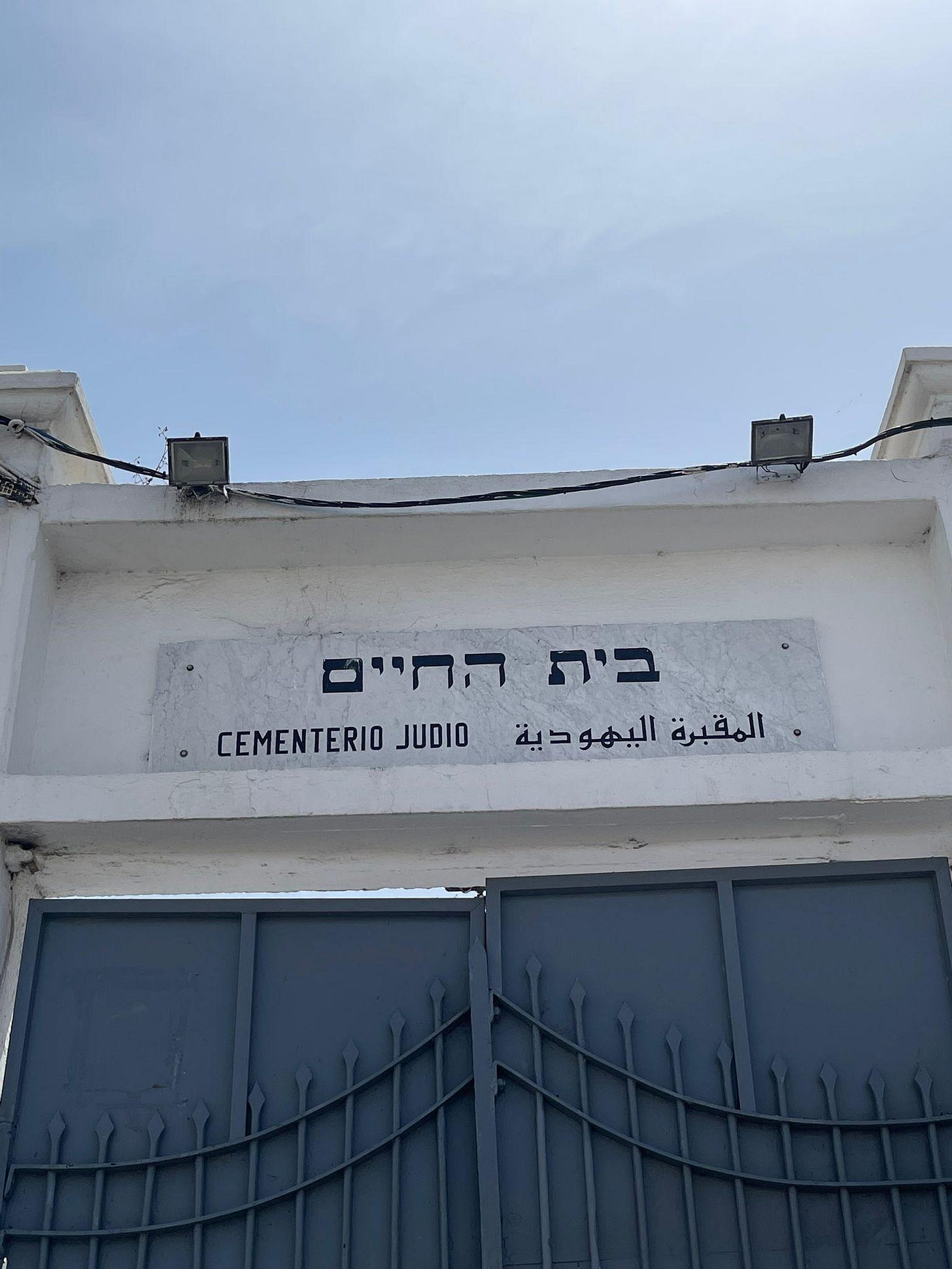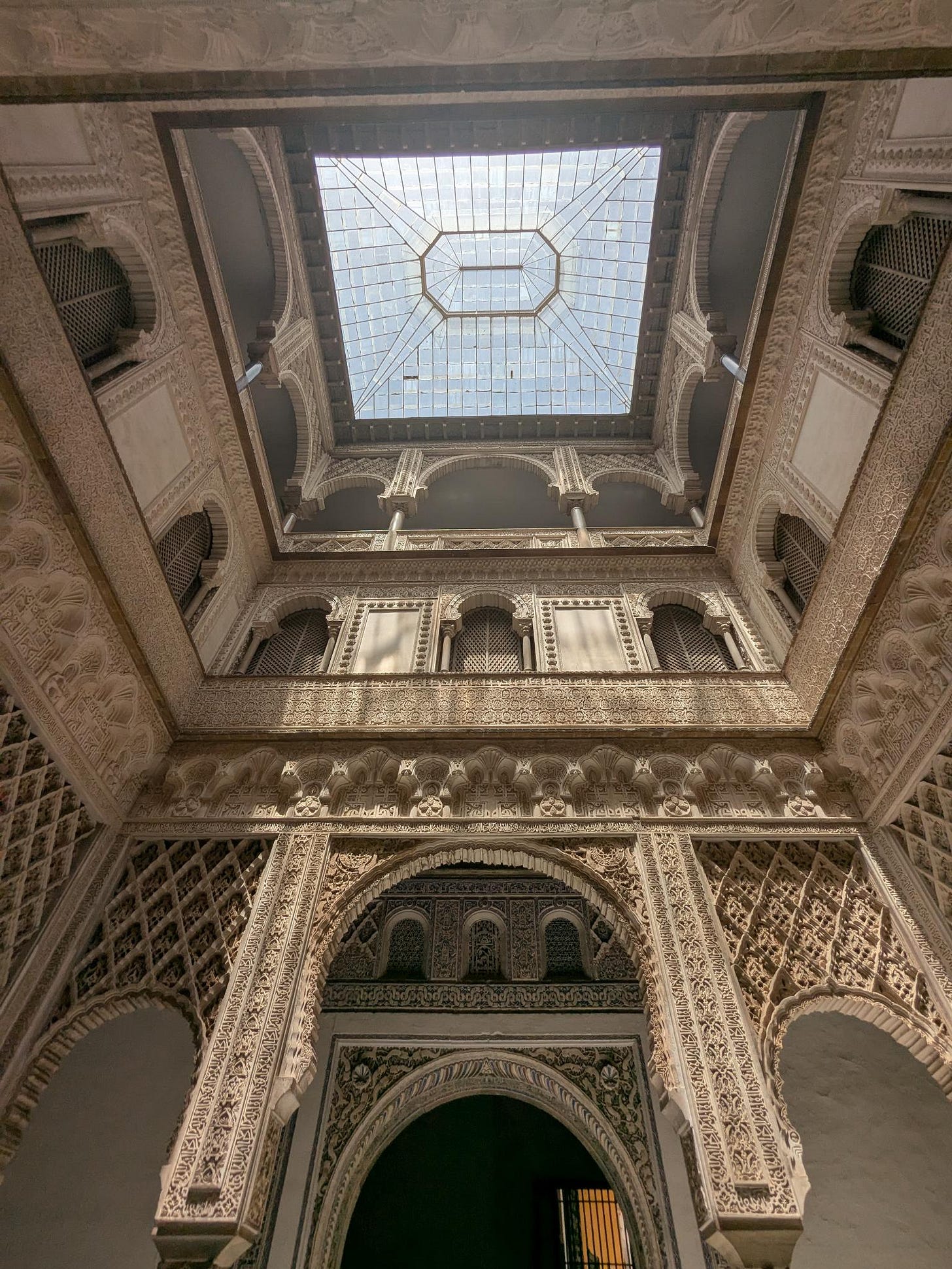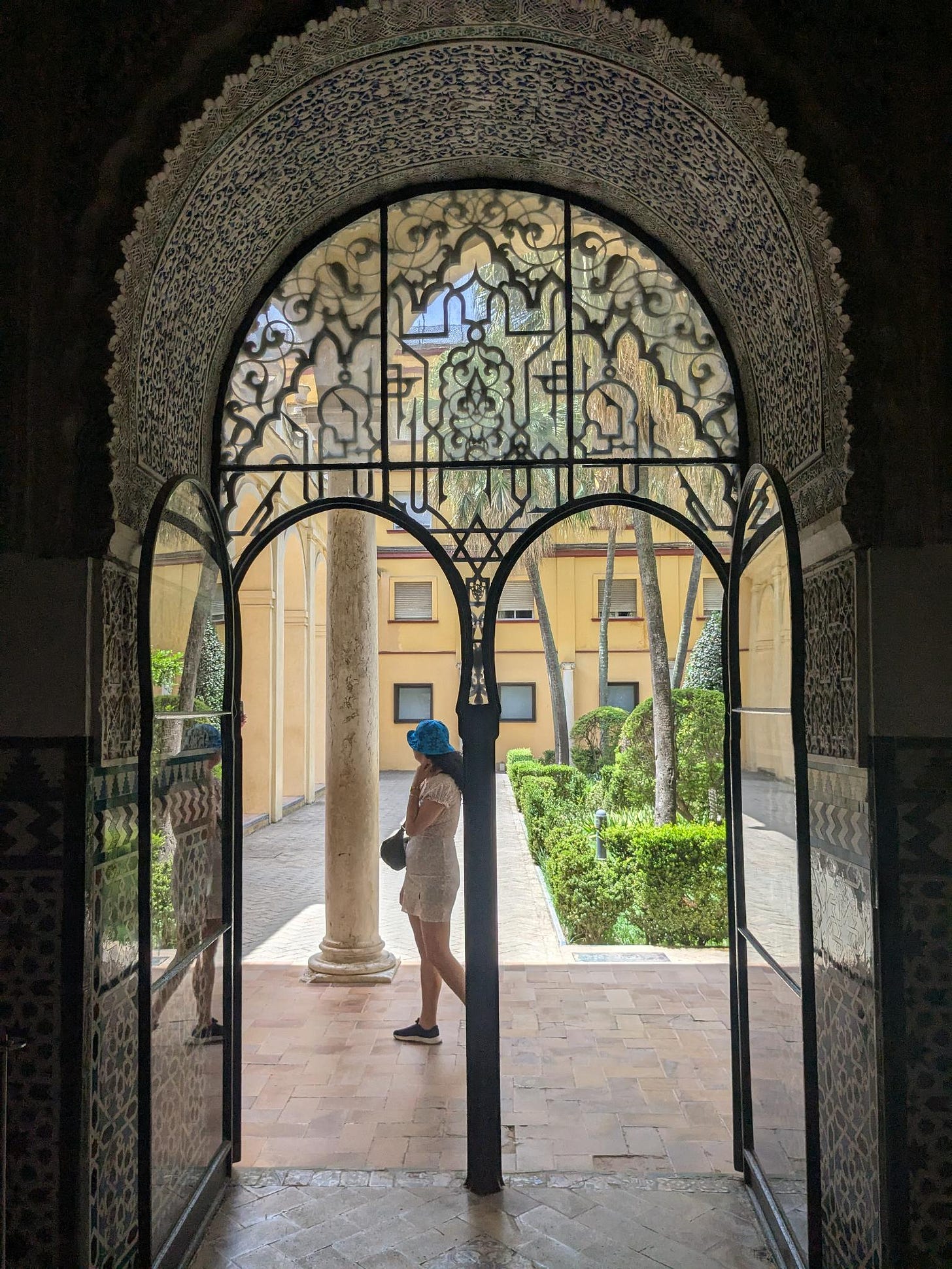Tales from Al-Andalus and the Breaking of Curses (Part I)
Untold Stories of Muslims, Christians, Jews
Sometimes, I will get a message from a friend or family member like the one I got this morning:
What you need to understand is that what’s happening in the Middle East didn’t start a hundred years ago. The blood feud began with Isaac and Ishmael, and the Muslim scriptures teach them to kill Christians and Jews…
They may then go on to “proof text” Islamic writings which they think prove a “plan” of Muslims for world domination, along with biblical writings which they believe show God’s preference for Jews over Arabs, or that prove God planned for them to hate one another.
Of course, they ignore many biblical passages which flatly contradict this, and they ignore the teachings of Islam which promote peace, and even give a special place to Christians and Jews: for instance, the fact that Muslim men are explicitly allowed to marry Christian or Jewish women without requiring them to convert to Islam (though they could not, for instance, marry a Hindu who is an “idol worshipper”). Or that if a Muslim cannot find halal meat wherever they live, they are permitted to eat “the good food” of Christians or Jews. Let alone the sayings of the Prophet Muhammad which honor “the people of the book” and which affirm that there are righteous Christian clergy under his protection.
Whereas Muslims see themselves as completely separate from those who worship many gods, Islam recognizes affinity with the other Abrahamic faiths. And indeed, at many points in the history of Muslim, Christian, and Jewish relations, this affinity has been honored and embraced.
Prior to my recent trip in southern Spain and Morocco, I knew about Ottoman policies on Christians and Jews—they held official government power over their own communities, and (with some exceptions) were allowed to practice their faith and enforce their own local laws. This is arguably why the Ottoman empire was one of the largest and longest lasting in history—it gave a relatively high amount of autonomy and protection to its territories, such that some places actually asked to join their empire.
During a period of several hundred years (again, always with exceptions) Muslims, Christians, and Jews lived in relative peace in the Holy Land. In fact, the Ottoman Empire was more often a place where Jews came for refuge after fleeing pogroms, crusades, and massacres in Christian Europe.
But on this trip, I also learned about untold histories of southern Spain. Spanish Christian kings allied with Muslim caliphates, made room for Islamic influence in their society, and at times rose to defend their Jewish communities against pogroms. King Peter I did all of this.
According to the guide at the Alcazar Palace in Sevilla, Peter I’s embrace of different cultural histories in his kingdom was popular with the common people (though not with the nobles, one of whom attempted a pogrom against Jews which was stamped out by Peter). In their palaces, the rulers in Sevilla created stunning combinations of Islamic and Christian elements. The entrance into this building has the Arabic phrase “none but Allah conquers” along with a Latin inscription giving credit to “the grace of God” for Peter’s reign. In this metalwork, you can also see a star of David.
And other stories of neighborly love between religions in this region still survive in living memory.
While we were in Morocco, an elderly shopkeeper struck up a conversation with me and a friend who is ethnically Ashkenazi Jewish (though he didn’t know this.) He began to tell us with a tone of longing of his childhood memories of Jewish neighbors during the time when they thrived in Tangier: Our doors were always open to each other, and my friends and I ran in and out and ate in each other’s homes and ate together. I’m talking now about the 1950s. I wish it were like this always.
As a minority group, Jews (like Amazigh, Christians, and others) sometimes suffered persecution and marginalization in Morocco. But during WWII, Morocco was one place where the European program of Holocaust was resisted by the Muslim Sultan. According to the Smithsonian:
As Morocco’s leader, he was Amir al-Mu’minin, or “Commander of the Faithful,” the supreme religious authority for his people. Mohammed saw looking after Moroccan Jews as his God-given responsibility. “Moroccan Jews are my subjects,” he told the Vichy government, “… and it is my duty to protect them against aggression.”
The next day, we stumbled upon Tangier’s historic Jewish cemetery, with some tombs up to 500 years old, reflecting a history of Jewish existence there which stretches back at least 2000 years.
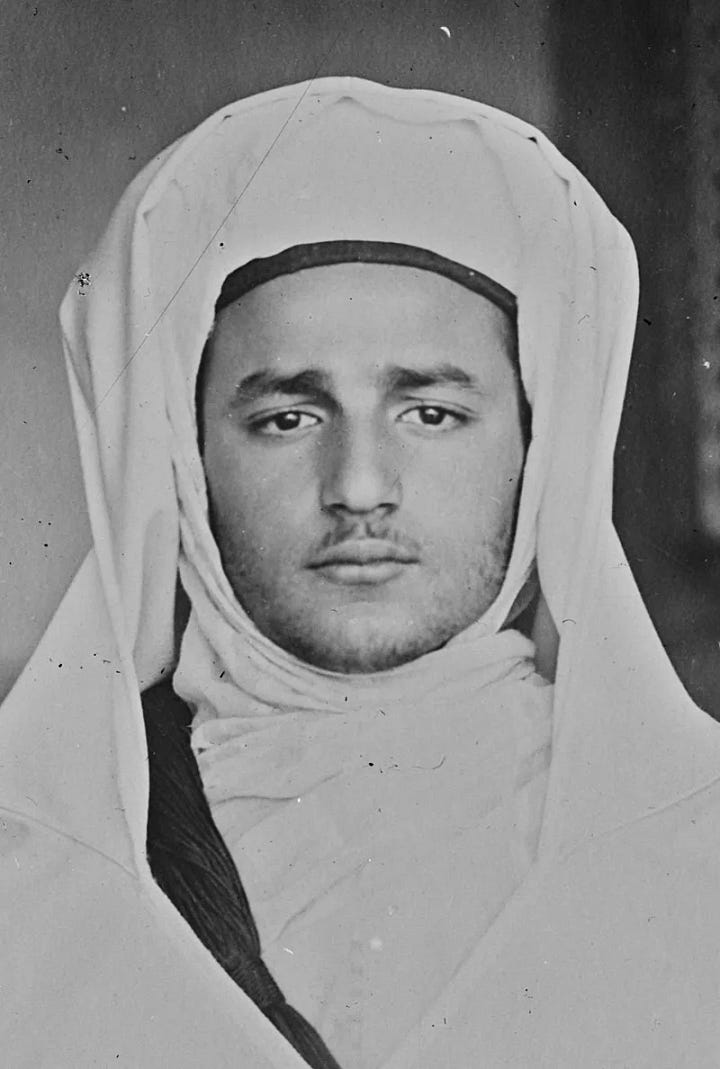
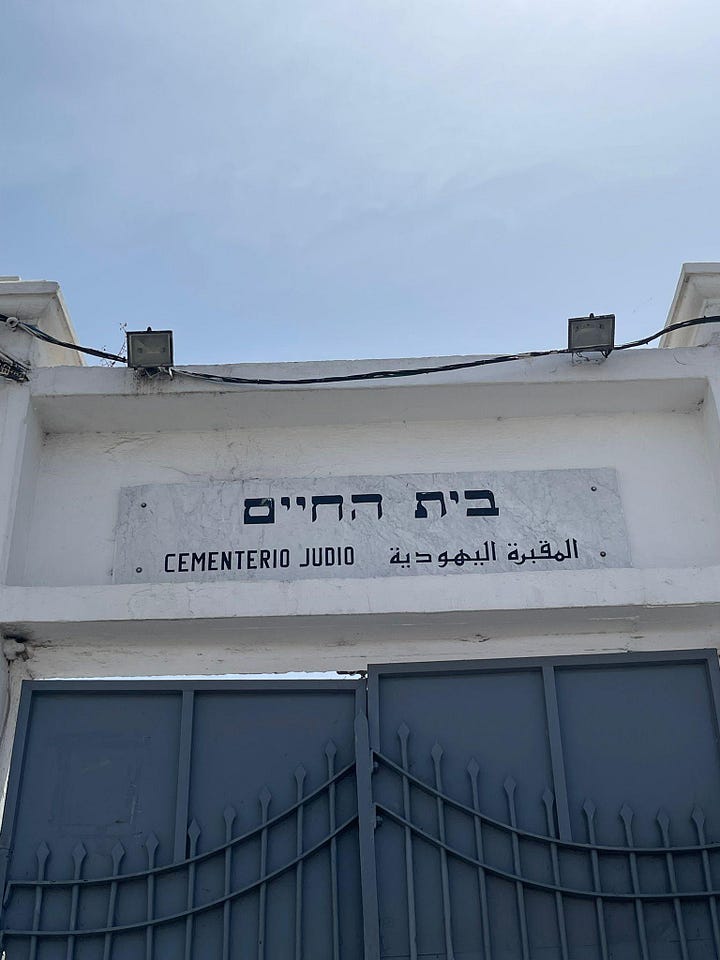
If these things were possible in 1000 AD, and in the 1300s, and in 1940, they are possible now, and they fly in the face of any myth of intractable ancient blood feuds or curses—and especially the noxious heresy that God of the Bible has someone ordained hostility between Abraham’s children. As much as these ideas ignore many historical and theological facts about Islam, they also ignore a lot of the Christian scriptures. In fact, God gives Ishmael his explicit blessing in Genesis (Gen. 17:18-20), and we see him reconciled with his brother at Abraham’s death (25:9). All that God promises to do with Ishmael is to make him a great nation (17:20).
The sultan of Morocco would have had a much easier time if he collaborated with the European powers who wanted a Holocaust in Morocco. But he saw a divine obligation to protect his Jewish citizens.
So how is it that today, many Christians promote the lie that the unprecedented violence we see is okay, or even a “good” thing which God approves? Why are we stoking the fires of war, arming people to kill women and children, and protecting those who have made their genocidal intentions clear and have backed it up by being responsible for over 99% of all casualties?
How is it that in the Name of the One who has broken every curse, we promote the lie of curses and blood feuds, and then use this lie to set the value of Arab and Muslim lives as less than our own?
We accuse Muslims of holding beliefs which promote violence, and yet we have been directly or indirectly responsible for the deaths of at least hundreds of thousands of Muslims in this century alone, all with the support of evangelicals.
Brothers and sisters, these things should not be! There is a sense in which all of this needless violence is a curse, but it is not one which we are meant to accept. We do have a way for every curse to be broken and every cycle of violence halted through the cross. We have the power of God to be peacemakers and fulfill Jesus’ commands. We have the ability to be a true light shining in the current darkness of the world, and to overcome evil with good.
We have the spiritual power to conquer fear and fear-monging propaganda with the power of love, and this power is not just an idea—it is actually very practical, simple, and concrete. More on this and how curses are broken in Part II.



